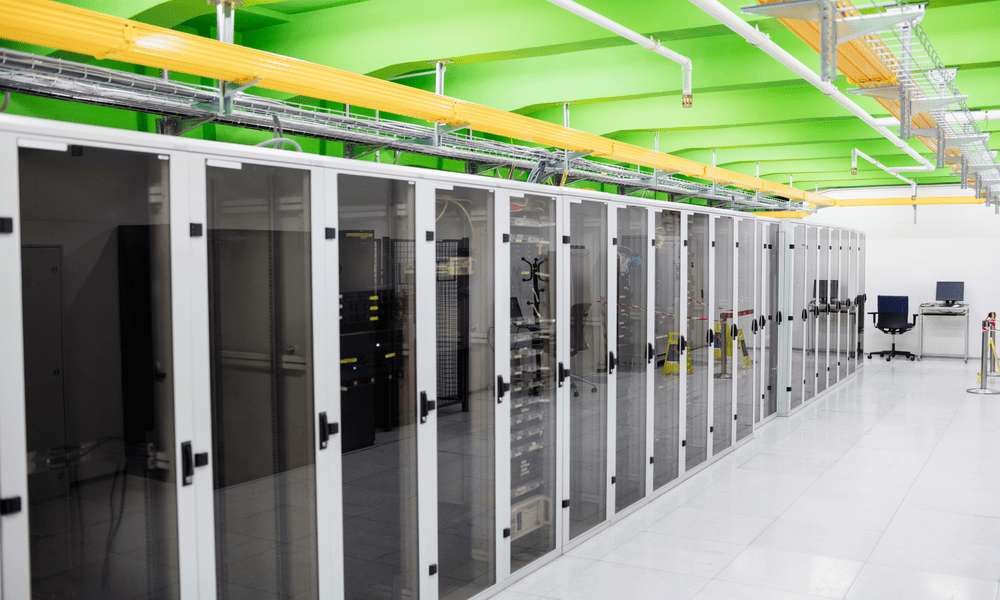Cloud Storage vs Cloud Computing: How They Are Different

Over the past few years, “the Cloud” is a common term people hear and say in various contexts in their day-to-day activities. Nonetheless, as the number of cloud services, capabilities, and providers keep growing, the number of cloud-related terms people need to understand is also expanding, and this may have caused some confusion. One of the most popular misconceptions is how the terms cloud storage and cloud computing are often used interchangeably while they’re actually different. As much as cloud computing and cloud storage have a lot in common and are derived from the same source (the cloud), they’re two different concepts. This article is about the differences between them.
Cloud Storage
Google Drive, Microsoft OneDrive, and Dropbox are several platforms that provide cloud storage services. At its core, cloud storage services providers do one thing: they allow companies — and also individuals — to store data on the cloud instead of on local hard drives. With cloud storage, companies can store data remotely and access them via the internet with any computer or mobile device. Once a document is stored on the cloud, it can be shared among people who are given access to it to enable easy collaboration.
Cloud storage provides companies with three main benefits: remote access, disaster recovery, and storage scalability. As mentioned, through data sharing, cloud storage allows for quicker and easier collaboration. Moreover, the data stored on the cloud can work as a backup for the data stored on the local inhouse system. Redundancy helps businesses prevent total data loss in the case of a disaster such as fire, flooding, or earthquakes. In terms of scalable storage, cloud storage allows businesses to have larger amounts of storage space for lower costs. This is an ideal and cost-effective solution for companies that need to store large files like video surveillance or massive amounts of email messages.
Cloud Computing
Microsoft defines cloud computing as the delivery of computing services — including servers, storage, databases, networking, software, analytics, and intelligence — over the Internet or the cloud to offer faster innovation, flexible resources, and economies of scale. Cloud computing services allow businesses to utilize powerful IT resources without having to actually invest in a physical infrastructure which can be costly. Also, quite similar to cloud storage, cloud computing platforms and services can be accessed from anywhere as long as there is an internet connection and authorized access.
Cloud computing services are typically outsourced to third party providers which can offer different types of services: Infrastructure as a Service (IaaS) — cloud-based, pay-as-you-go, and customizable IT infrastructure services including servers, storage, networks, operating systems, and virtual machines such as Microsoft Azure, Google Compute Engine, and Amazon Web Services; Platform as a Service (PaaS) — cloud-based, on-demand hardware and software tools designed to provide convenience for developers to create, test, deliver, and manage web or mobile applications such as AWS Elastic Beanstalk and Apache Stratos; and Software as a Service (SaaS) — cloud-based softwares which can be used on a subscription basis with a web browser or apps on a phone, tablet, or PC such as Google Apps, Microsoft Office 365, Salesforce, Hubspot, MailChimp, and ZenDesk.
Cloud Computing vs Cloud Storage
There are three major differences between cloud computing and cloud storage. First, cloud computing requires higher processing power than cloud storage while cloud storage needs more storage space. Second, cloud computing grants its users the ability to remotely work on and transform data such as coding an application, while cloud storage is simply a medium for data storage and sharing. Finally, cloud computing is usually targeted for enterprises, while cloud storage can be used for both professional and personal reasons.
These differences don’t mean that one is better than the other. It’s important for companies to know what option is right for them. This kind of decision is highly personalized and depends heavily on their business type, situation, and demands. If a remotely accessible storage space for large amounts of data is the requirement, then cloud storage is the solution. However, when remotely accessible and cost effective platforms, infrastructures, and softwares are needed for specific business tasks, cloud computing is the answer.

















